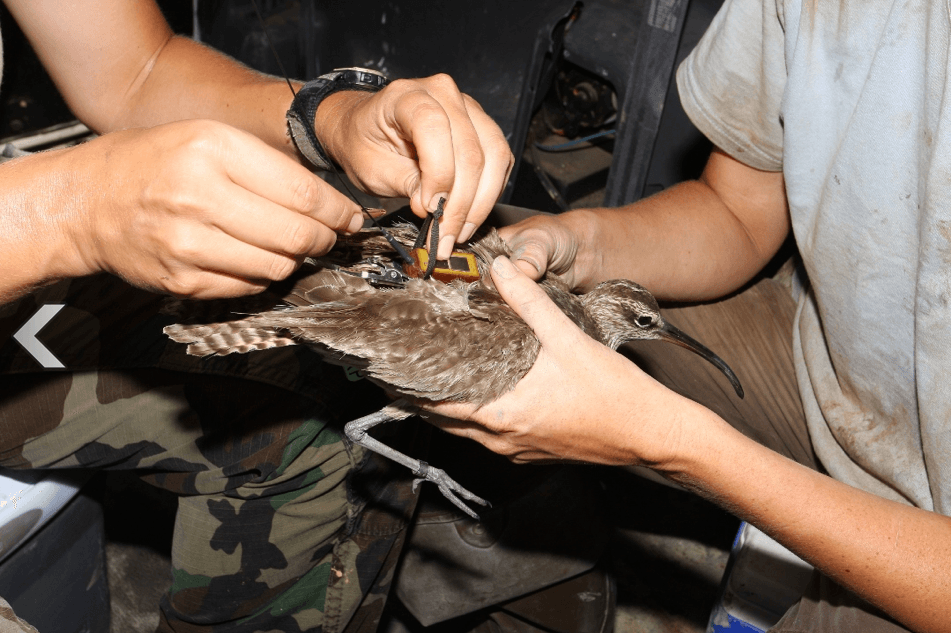Endangered birds survive hurricanes during migration, only to be killed by hunters
A whimbrel is held while it is fitted with a tracking tag. (Photo by B. Paxton/Courtesy of Bryan D. Watts)
Story from Here and Now. Listen to audio above for full report.
Every years, tens of thousands of migratory birds leave Canada as fall nears and fly south.
They fly thousands and thousands of miles along the Atlantic toward wintering and breeding grounds in South America. These birds — whimbrels and others — are dwindling in number, despite being protected in North America. Unfortunately, some stops on their way don’t protect the birds, and are also home to aggressive migratory bird hunts.
Researchers like Bryan Watts, Director of the Center for Conservation Biology at the College of William and Mary, discovered just how quickly that can do damage.
Watts and his colleagues have been tracking a pair of whimbrels for years as they migrate up and down the Atlantic coast of North and South America. This year, a tropical storm and a hurricane in the Caribbean forced their two birds far out to sea, and then to land on the island of Guadeloupe, where bird hunting is a popular sport.
Within seconds of arriving on the island, they were shot and killed.
“It was really disappointing to lose those two birds. These birds have been through so many things in their long migrations,” Watts said.
Indeed they have. The birds will fly nonstop for four to five days at 30-45 mph. Typically they fly right past Guadeloupe and other similar islands like Martinique, Barbados and even the coastal region of French Guyana.
“They’re capable of just amazing athletic feats.” researcher Bryan Watts
But the storms, Tropical Storm Maria and Hurricane Irene, forced the birds to make an earlier landing. And it cost them their lives.
Watts says that Guadeloupe, Martinique and French Guyana have a culture of hunting migratory birds that traces back to France, which governs the area. In France, he said, they often hunt migratory birds on the Mediterranean Sea.
“These birds wouldn’t have stopped over on those islands if they’d not hit the tropical storm,” Watts said.
While tragic, Watts did say that they at least now have an indication as to why the migratory bird populations are in such a steep decline. The next step is to try and get the local populations, which hunt the birds for sport, rather than subsistence, to adapt to a more hands-off approach to birding.
—————————————————–
“Here and Now” is an essential midday news magazine for those who want the latest news and expanded conversation on today’s hot-button topics.
